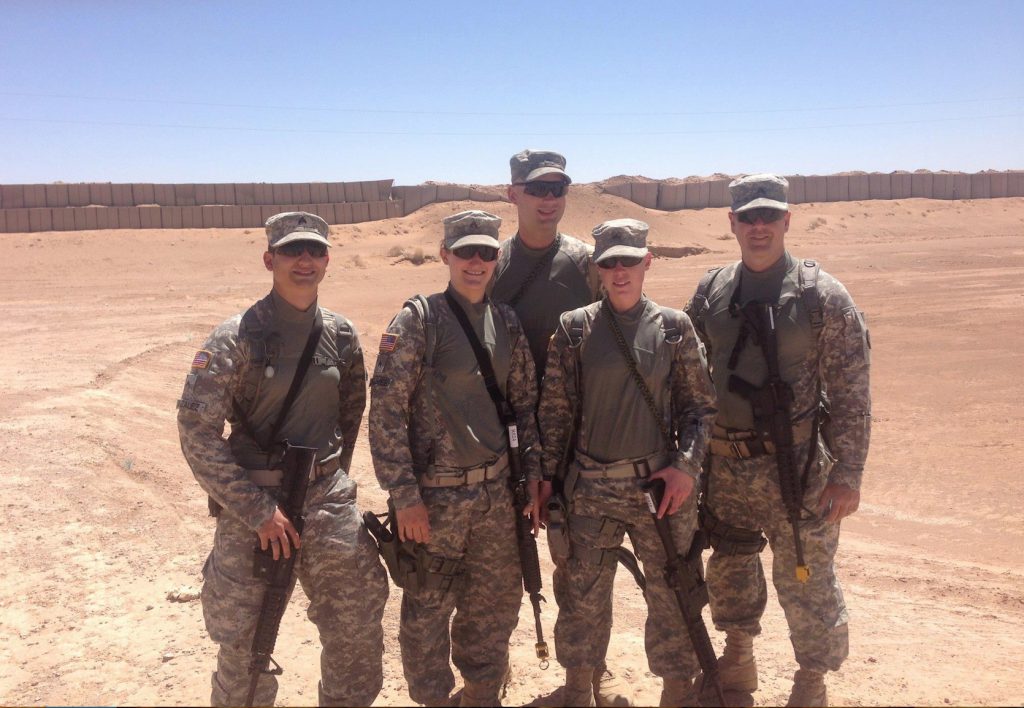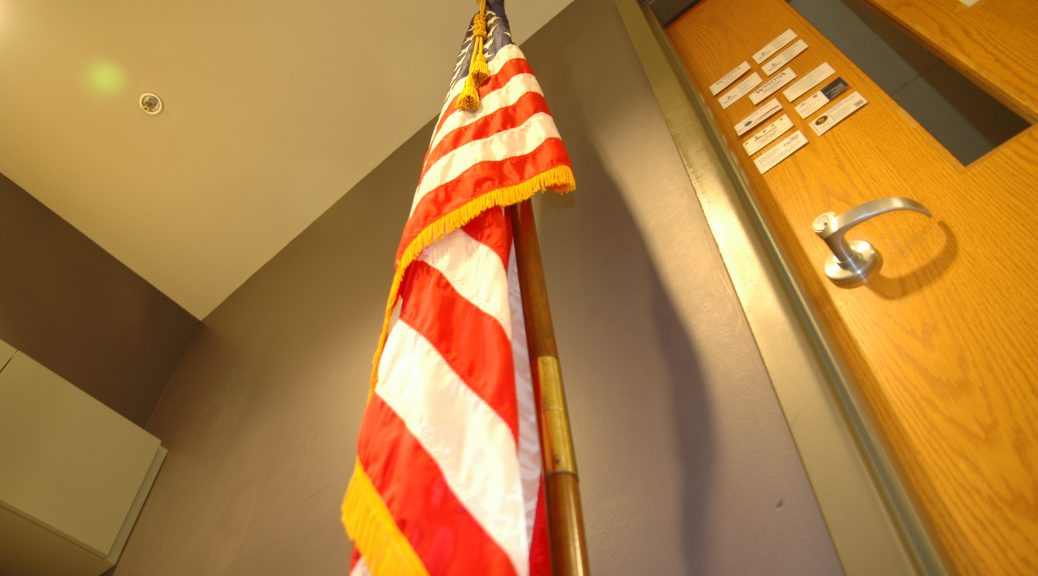Army Veteran Discusses Life as a College Student
In order to better understand what life is like for a veteran in a college setting, Army veteran and Winona State student Sara Manning discussed how she feels in an environment where she is surrounded by younger, and often non-military-affiliated, peers.
Manning offered her take to help other students understand the difficulty veterans face in putting themselves through college.
Off in the distance from where Manning sat during an interview, a car backfired. Her eyes darted to its place of origin and she disappeared into thought. She was overseas again.
“Muscle memory,” Manning said, pressing her fingers to her neck to check her pulse.
According to Britani Woodworth from Winona State’s Veterans Affairs office, around 200 members of the armed forces enroll at the school following deployment. For many of them, this is a bookend to life-changing circumstances, and sometimes their readjustment to private citizenship is more difficult than they originally imagined.
“I would say it changed me for the worst,” Manning, 33, said, speaking about her deployment in Jordan, Kuwait and Saudi Arabia. “I’m still in transition. I’m not the person I once was. My interpersonal skills have narrowed and I don’t really trust groups of people.”
Manning’s deployment lasted 16 months, which saw her working as military police, traveling to U.S.-occupied countries and detaining soldiers deemed no longer fit to serve.
“I’ve always been comfortable with discipline,” Manning said.

On if she is comfortable being in an environment where she is more world-weary than the young populace of a college campus, Manning said, “Deployment changed my mentality, and I think that affected my integration into the college community. My personal bubble is pretty small and it takes me awhile to trust people.”
According to Woodworth, who is also a student along with being a staff member in the Veterans Affairs office, it is common for veterans to have trouble integrating into a college community following deployment.
“There’s a hard adjustment for people in the military coming back from a deployment, (and) back into civilian life,” Woodworth said. “The normalcy of everything is really hard for some people.”
Manning also discussed how being a veteran influences her role as a college student.
“It is very… I don’t know if surreal describes it,” Manning said. “I definitely do not identify with anybody there, even the professors. So it’s very intimidating in a way that I just don’t know how to function …”
Along with the aforementioned difficulties, Manning referenced her son as an added obstacle in terms of her role as as a student.
“I also have a child,” Manning continued, “so that makes it even harder to (engage) people younger than me, because they assume that because I’m in a class with them, I’m able to freely able to use my time … and that’s just not something I can do.”
Similar to her earlier comments, Manning again discussed discipline and how it appears to be more instrumental to her than her classmates.
“The biggest challenge is having other people understand discipline,” Manning said. “Other students seem nonchalant with what they’re doing, and it’s kind of on a back-burner, whereas I’ve been trained that if (something) is going to get done and done right, it’s going to take a lot of time, a lot of effort and less procrastination.”
Manning elaborated her thoughts on procrastination and how it negatively impacts work that needs to be done.
“The more you procrastinate, the less chance you have to get it done,” Manning said. “Which should be obvious, but not to a lot of people I’ve seen so far at universities.”
Woodworth, too, discussed the difference in discipline she notices between veterans and non-military-affiliated students.
“When I got back from my basic and AIT (Advanced Individual Training) training … and started into school, I noticed … people are on their phones, distracted,” Woodworth said. “ (They) would (also) start packing up their stuff before the teacher was done talking. Like you can’t wait for them to finish their words?”
Perhaps because of her level of discipline, Manning remarked she sometimes feels out of place in an educational setting.
“There’s times where I definitely feel out of place,” Manning said. “I resonate more with the teachers than I do with the students, so that might tell you something.”
Woodworth said many veterans find difficulty in finding a sense of purpose in civilian—and by extension, college—life.
“When you’re in a deployment setting for several months, you always have a purpose,” Woodworth said. “You always have strict things to do and then when you get back into civilian life, it’s more laid back, especially going to college.”
Woodworth suggested feelings of alienation may be created by the individual and not their environment.
“I feel like maybe we alienate ourselves and we tend to feel like we’re more different than we actually are,” Woodworth said. “Coming from a deployment aspect, there probably is some that exists, because you see things you know other people aren’t going to see unless they’re over there … But when it comes down to it, we’re not that different.”
Despite being 33, Manning said she doesn’t always feel different than her mostly younger peers, but she does notice she comes from a different generation.
“I don’t feel any older than … a lot of students, but there are some aspects where I feel older,” Manning said. “A lot of these students feel things need to be handed to them, whereas when I grew up things needed to be earned.”
Manning drew from her upbringing as the root of her discipline and how it continues to reflect the way she conducts her work.
“‘Earn your keep’ was a big phrase or saying when I grew up, “ Manning said. “A lot of attitudes from my age to these new kids have changed significantly, and there might be an influence with the whole military career, because that’s an added disciplinary area that a lot of these kids won’t ever have.”
Though there is a gap between a veteran like Manning and those who are not in the military, Manning said she is okay being different in that regard.
“I’m always trying to adapt and overcome,” Manning said.
